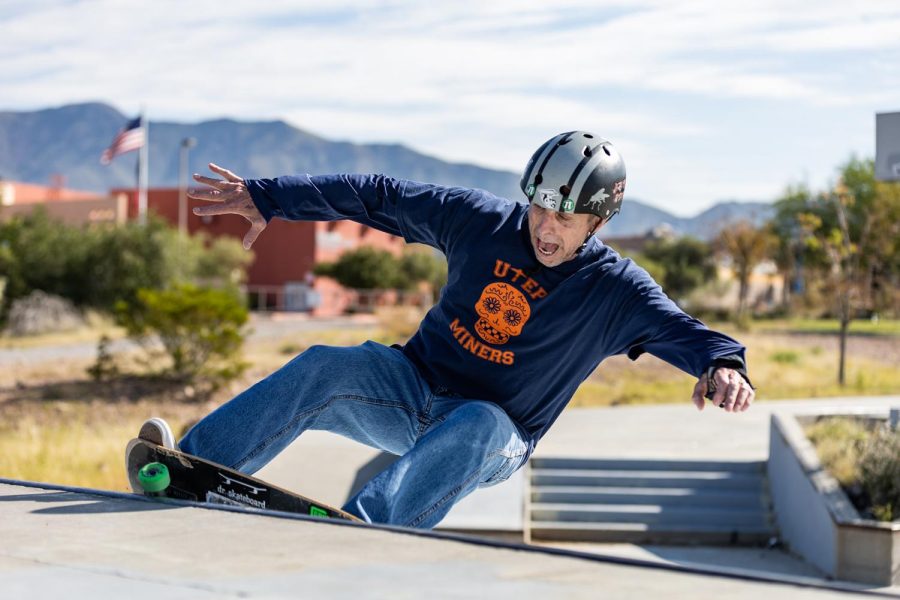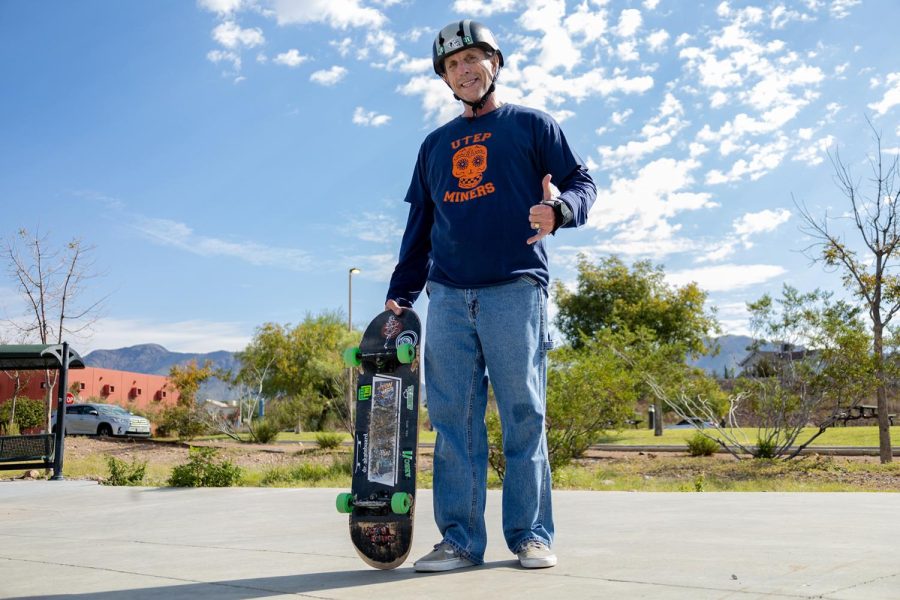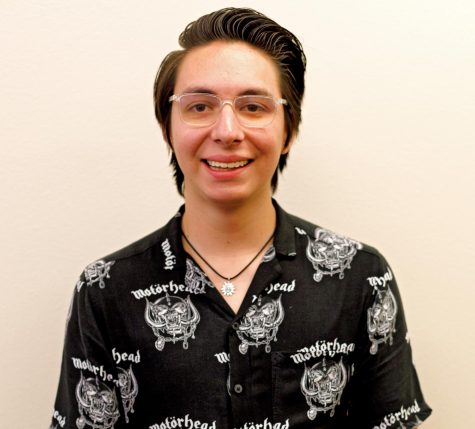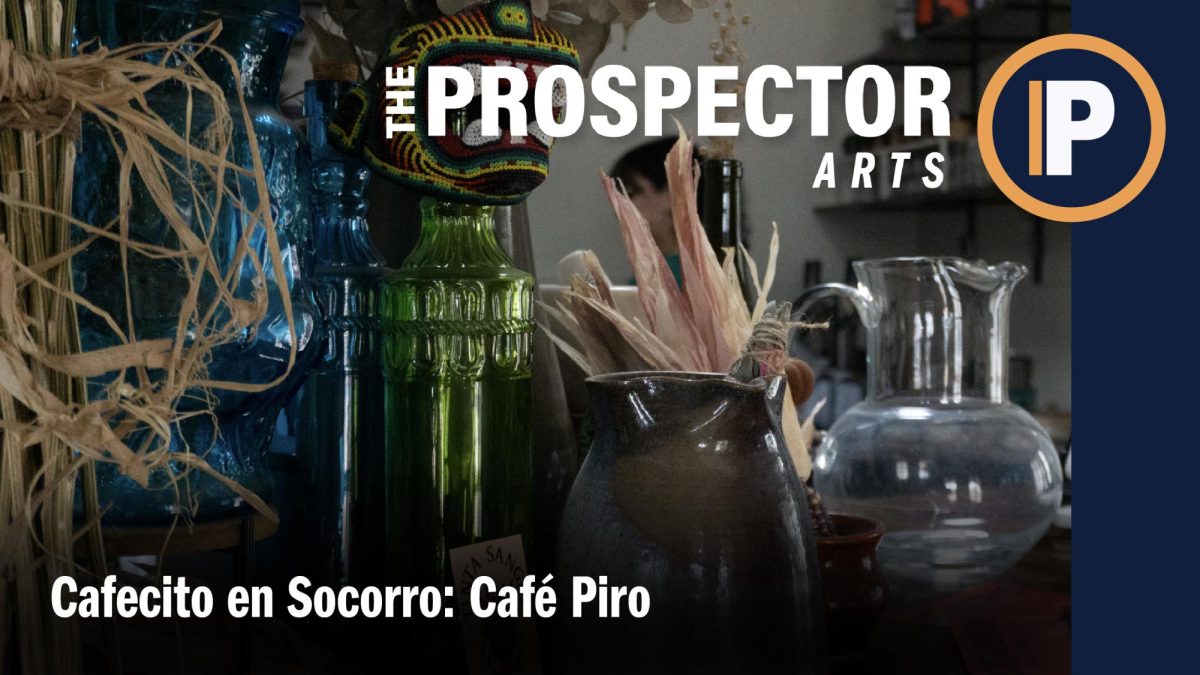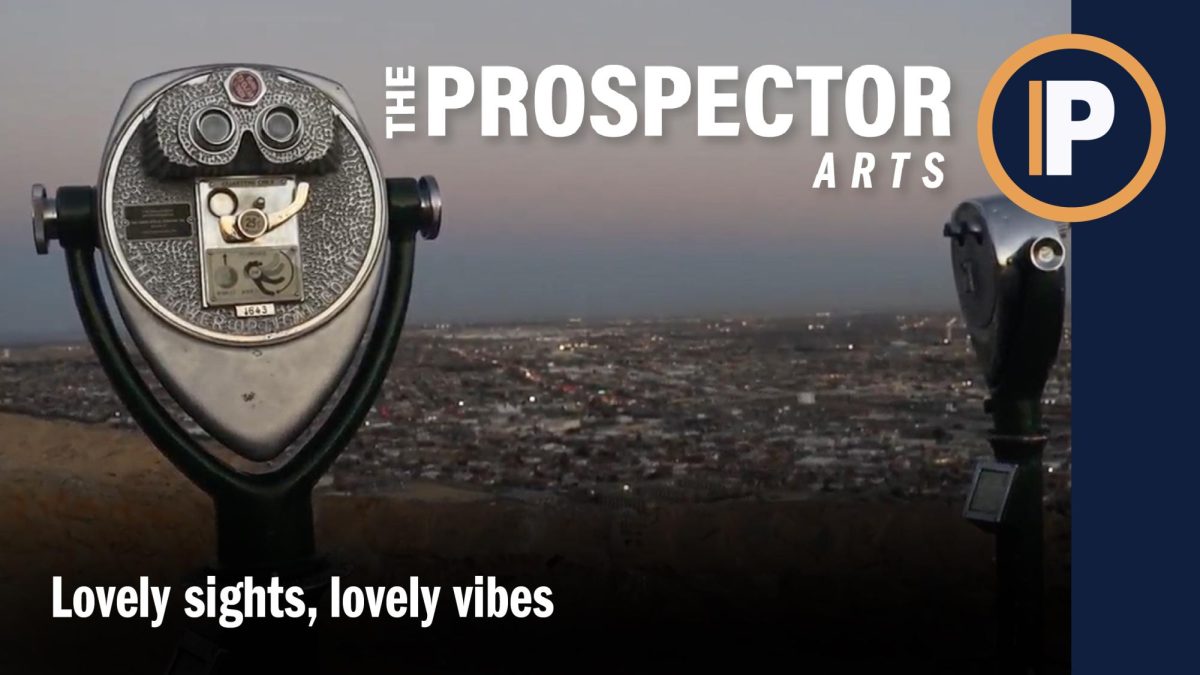Editor’s note: This is the third of a three-part series on professors who skateboard at UTEP.
When skateboarders get on their board and push forward, they are actively engaging in motion physics. Whether they are aware of it or not, skateboarding is a great way to visualize this academic subject.
William “Bill” Robertson Ph.D., otherwise known as “Dr. Skateboard,” is the Dean of the College of Health Sciences at UTEP and is using skateboarding to get young minds interested in science.
Robertson, who is originally from Richmond, Virginia, has been skateboarding since the ‘70s. This was during a time where skateboarding was still developing and was known as freestyle skating.
Although very uncommon to see this style of skating today, Robertson says that he loves that skateboarding is always evolving.
“As I’ve gotten older my skating has changed because I have to adapt to what I’m able to do, but what’s cool about skateboarding is that’s welcomed,” Robertson said. “The community is always open to the people who skate. It doesn’t matter if you’re a beginner, if you’re someone like me who is a professor, that’s the thing I’ve always been drawn to.”
Before Robertson earned his five degrees, including a bachelors in Spanish here at UTEP, he was a professional skateboarder who began competing around the U.S.
As he graduated high school, skateboarding lost popularity in mainstream media and less competitions were being held.
While Robertson was still inspired to become a professional skateboarder, he knew it would be a difficult task to accomplish. During this time, Robertson held skating demonstrations at schools and the teachers he met during these presentations are what pushed him towards becoming an educator.
“I had a wife and I was trying to figure out what I was going to do in my life and I thought being a teacher was a happy medium,” Robertson said. “So I would have my summers off and I can still continue skating. I started to realize that when I used my skateboard to teach my class changed, they were totally into it. I would try to explain physical science concepts and I would use my skateboard and the kids that were really difficult suddenly were really into school.”
With the idea in mind of using skateboarding to teach science, Robertson took on a new approach to get younger generations interested. He created a comic book series titled “Dr. Skateboard’s Action Science,” which is written in both English and Spanish. Robertson explains having the content in both languages gave him the opportunity to not only connect with students across the border, but all throughout Latin America in places like Peru, Chile and Argentina.
Robertson sees his skateboarding not only as a tool he can use to help young minds learn about physics, but also a way to express himself. To him it is more of an art form rather than a sport; it is his passion he has for skateboarding which helped him apply himself to academics.
“It helps me to feel connected to me as a person and it’s a way that I can express myself, which is kind of unique and personal in so many ways,” Robertson said.
Skateboarding has become Robertson’s driving force for the past four decades.
Whether it’s doing handstands on his board or a hang 10 manual, this is what makes him happy.
“Skateboarding has always fueled success in my life and that’s why I continue to just enjoy it. (It) is a driver in my life even as I’ve gotten older,” Robertson said. “I can go freestyle and have fun with it and really that’s the bottom line. Skateboarding is fun and it makes me happy, that’s a good part of my life and I want to stick with it.”
Read more about from this three-part series on professors who skateboard at UTEP.
Part I: Brian Jarvis, Ph.D.
Part II: Steven Brown
Alberto Silva Fernandez is a staff photographer and may be reached at [email protected]; @albert.sf08 on Instagram; @albertosilva_f on twitter.


